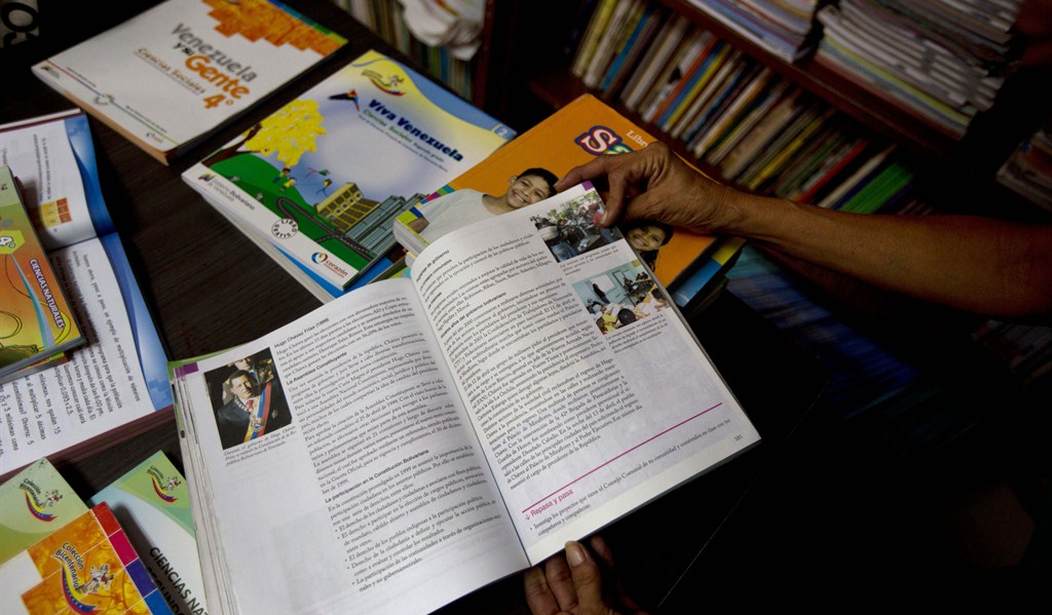How are businesses and entrepreneurship presented in school textbooks? A new study reveals a depressing truth. Carried out in Germany, the study should inspire think tanks around the world to pose the same questions in other countries, too.
The results of the study, which was commissioned by the Friedrich Naumann Foundation in Germany, show that entrepreneurial thinking and entrepreneurs only make a marginal appearance in most school textbooks. “However, this does not apply to the government, which appears in the books as a universal and often paternalistic problem solver.” Overall, the authors make the following assessment of economics and politics textbooks: “We find a very limited, sometimes caricature-like, and distorted image of entrepreneurs.”
The depiction of historical entrepreneurs serves “primarily to portray grievances that allegedly result from ‘free-market competition’ and the dubious character traits of entrepreneurs.” And technical innovation? If these books are to be believed, they often fall from the sky and create problems that, of course, have to be solved by the father state. Modern aspects of globalization, the study’s authors explain, are often presented in a monocausal, one-sided, and negative way that foregrounds issues such as wage dumping and climate change.
The tasks the books ask students to solve require little knowledge and a lot of opinions: “If you look at the material on which the tasks are based, economic questions often have to be worked on without any technical background knowledge or factual information. It is not uncommon for students to be expected to take a (political) position … without any kind of fact-based discussion being undertaken first.”
Recommended
For example, students are asked to suggest what companies in Bangladesh could do to increase the amount seamstresses are paid. Another task prompts: “As a class, discuss whether you think it is possible to achieve or maintain social justice in Germany.” Rarely do the books define what is meant by “social justice.” In many cases, the terms justice and equality are used synonymously.
Unfortunately, the study does not examine how school textbooks present economic alternatives to the market economy. I have experimented on this myself over the past 20 months, in 30 countries where I have given lectures: In each of these lectures, which I often gave to students and young people, I asked: “At school, which of you learned about Mao's ‘Great Leap Forward,’ the largest socialist economic experiment in history in which 45 million Chinese people died between 1958 and 1962?” Very few participants in any of the countries I visited said they had – I estimate that 95 percent never heard of it. You can more about this topic here.
In contrast, the students at my talks have all heard about the supposed evils of capitalism, even though it is thanks to capitalism that the number of people living in extreme poverty around the world has fallen from around 90 percent in 1820 to less than 9 percent today. Can this number be found in any of the textbooks examined?
There are often calls for more economics to be taught in schools. I am skeptical about this, and the worthwhile study from Germany reinforces my skepticism. I fear that more economics lessons would simply equate to more anti-capitalist indoctrination. In addition, I generally consider teachers to be the least suitable people to teach about economics. After all, a typical teacher’s biography usually looks something like this: attended school, spent a few years at university, then returned to school. Most teachers have never spent any time in business.
I think it would make far more sense to invite entrepreneurs into schools every week. They could tell the students, using their examples, about the joys and challenges of entrepreneurship and, in the best case, inspire students to think about setting up businesses of their own later in life. At the same time, these entrepreneurs could encourage students to be more critical of demands for ever greater government interference in the economy.
Rainer Zitelmann is the author of the recently published book How Nations Escape Poverty.

























Join the conversation as a VIP Member